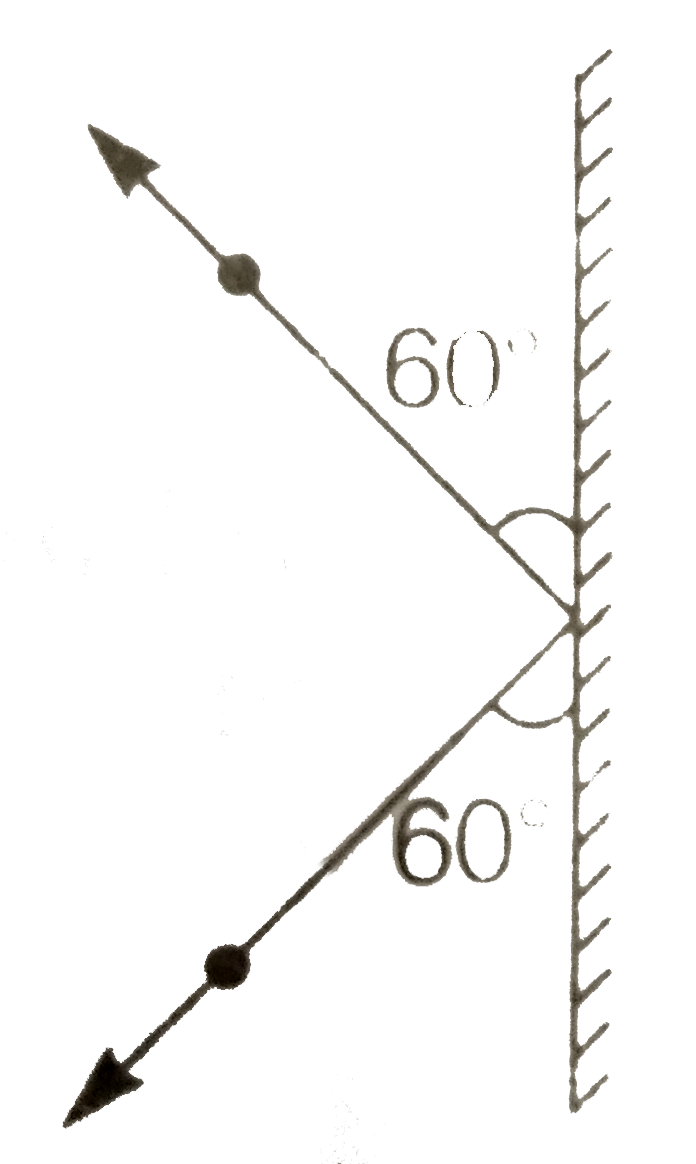A ball of mass 20 gram hits a wall at an angle of 45∘ with a velocity of 15m/s If ball rebounds at 90∘ to the direction of incidence, calculate the impulse received by the ball.
Step by step video & image solution for A ball of mass 20 gram hits a wall at an angle of 45^(@) with a velocity of 15m//s If ball rebounds at 90^(@) to the direction of incidence, calculate the impulse received by the ball. by Physics experts to help you in doubts & scoring excellent marks in Class 11 exams.
Updated on:21/07/2023Topper's Solved these Questions
Similar Questions
A ball of mass 20 gram hits a smooth wall at an angle of 45∘) with a velocity of 15m/s If ball rebounds at 90∘ to the direction of incidence, calculate the impulse received by the ball.
View SolutionA ball of 0.20kg hits a wall at an angle of 45∘ with a velocity of 25ms−1. If the rebounds at 90∘ to the direction of incidence, calculate the change in momentum of the ball.
View Solution
Knowledge Check
A ball of mass 500 gram strikes a wall with a velocity of 80 m/s and rebounds with the same velocity. If the tme of contact is 1/30 sec, then the force exerted by the ball on the wall is
A2000NB2200 NC2400ND2500NA ball of mass 250 g moving with 20 m/s strikes a vertical wall and rebounds along the same line with a velocity of 15 m/s. If the time of contact is 0.1 s, the force exerted by the wall on the ball is
A87.5 NB12.5 NC−12.5 ND−87.5 NA cricket ball of mass 0.5 kg strikes a circket bat normally with a velocity of 20 m s−1 and rebounds with a velocity of 10 m s−1. The impulse of the force exerted by the ball on the bat is
A15 N sB25 N sC30 N sD10 N s
A ball of mass 0.1 kg is thrown against a wall. It strikes the wall normally with a velocity of 30 ms−1 and rebounds with a velocity of 20 ms−1. Calculate the impulse of the force exerted by the wall.
View SolutionA cricket ball of mass 0.2 kg moves with a velocity of 20 m/s and is brought to rest by a player in 0.1 s. Calculate the impulse of the ball and average force applied by the player.
View SolutionA ball of mass 0.2kg strikes an obstacle and moves at 60∘ to its original direction. If its speed also changes from 20m/s to 10m/s, the magnitude of the impulse received by the ball is
View SolutionA ball of mass 0.2kg strikes an obstacle and moves at 60∘ to its original direction If its speed also changes from 20m/s to 10m/s, the magnitude of the impulse received by the ball is .
View SolutionA ball of mass 3kg moving with a speed of 100 m/s, strikes a wall at an angle 60∘ (as shown in figure). The ball rebounds at the same speed and remains in contact with the wall for 0.2 s, the force exerted by the ball on the wall is

View Solution
